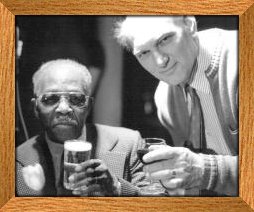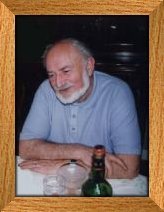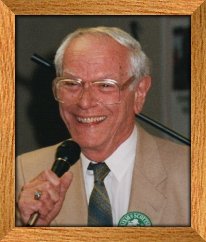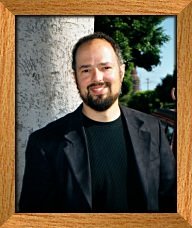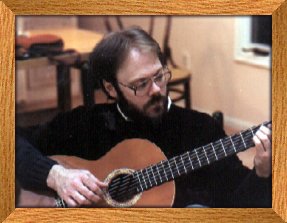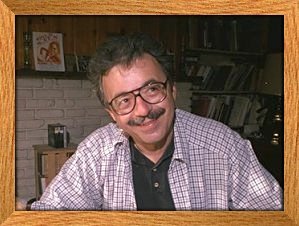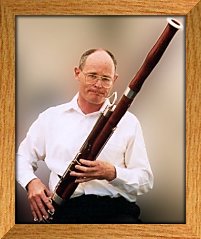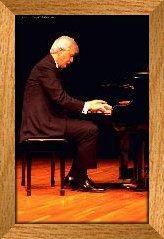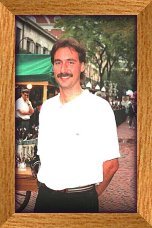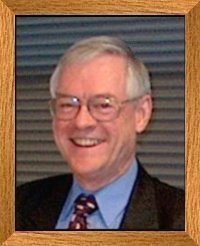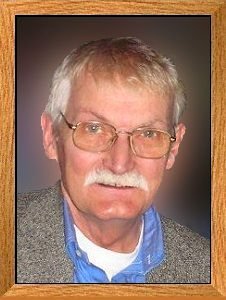| Ragtime · Blues · Hot Piano International Researchers |
![]()
![]()
|
Laurie Wright (1929-2010) was born in Ware, Hertfordshire. His interest in rhythmic music began at an early age. He opened an electrical and record shop in Walthamstow, East London in 1955, doing his best to promote jazz. Then in 1965, together with Jack Harvey and three other friends, he founded the internationally acclaimed magazine “Storyville”. In 1968, along with John R.T. Davis, he produced the booklet “Morton’s Music” and he began publishing a long series of jazz books, several of which he wrote himself. Major works by Laurie include: “Mr. Jelly Lord”, “King Oliver”, “Fats In Fact”, and the “Jug Bands of Louisville”. By June 1995 the “Storyville” magazine had reached 162 issues, all published on time — a notable achievement. Since “retiring” in 1995, Laurie has produced four follow-up volumes of the magazine. |
![]()
|
Prof. Lawrence Gushee was born in Ridley Park, Pa. (near Philadelphia) in 1931. He may have heard Jelly Roll — without knowing it — on the Chamber Music Society of Lower Basin St. radio show of July, 1940, but truly fell under the spell via the Circle records edition of the 1938 interviews to which one of his relatively well-heeled friends subscribed. His fumbling attempts to play the clarinet, which began around the same time, have persisted to the present day. His atypical schooling in Latin probably led to academic specialization in musicology with a dissertation on a ninth-century music theorist, although he came to prefer fourteenth-century France as grist for his academic mill. Recently retired from teaching, he continues research and academic advising at the University of Illinois, particularly hoping to see his monograph on the vicissitudes of the Creole Band (usually erroneously called Freddy Keppard’s band) of 1914-1918 in print before the 22nd century arrives. Lawrence Gushee’s eagerly awaited 400-page book — “Pioneers of Jazz : The Story of the Creole Band” — published by the Oxford University Press, is now available in hardback. He has also provided new factual information and an ‘afterword’ to the updated 344-page book, Mister Jelly Roll — The Fortunes of Jelly Roll Morton, New Orleans Creole and “Inventor of Jazz.” Published by The University of California Press, the book reasserts the importance of this work of African-American biography to the study of jazz and American culture. |
![]()
|
Roger Richard was born in Sauxillanges (Puy de Dôme), France, in 1934. In his youth, he studied music ranging from plainsong to Bach. Hearing Jelly Roll Morton’s “Mamie’s Blues” in 1954 came as a revelation, and he has been a Morton devotee ever since. Roger is an author and translator for the Bulletin du Hot Club of France. He collaborated on Laurie Wright’s bio-discography, “Mr. Jelly Lord”. A personal friend of the late Bill Russell, he contributed to “Oh, Mister Jelly” : A Jelly Roll Morton Scrapbook”. From his vast collection of 78 r.p.m. records and associated memorabilia, Roger has made available the striking images of rare original and reissue record labels, which can be viewed on the “Recordings and Discography” page. By an amazing coincidence, Roger, a retired English language teacher and local historian, lives in a small French village named Lamothe. |
![]()
|
Prof. James Dapogny has a Doctor of Musical Arts degree in composition and is Professor of Music at the University of Michigan School of Music. As well as maintaining a busy schedule in the classroom and research in jazz theory and history, he maintains an active nation-wide career as pianist-bandleader, arranger and recording artist with James Dapogny’s Chicago Jazz Band. He is editor of “Ferdinand “Jelly Roll” Morton: The Collected Piano Music” a first-of-its-kind collected edition of a jazz musician’s work. In 1982 he was honoured with a Faculty Recognition Award and he has held a Thurnau Professorship, awarded for outstanding teaching. He is a leading authority on the music of Jelly Roll Morton as well as a key editor and editorial board member of Jazz Masterworks Editions, a publication project of Oberlin College and the Smithsonian Institution. |
![]()
|
Mike Montgomery (1934-2011) was born in Chicago, Illinois. Having collected piano rolls since 1951 and researched the history of Ragtime and Blues, he has established himself as a leading authority on the subject. He has produced 16 LPs [1970-75] and 10 CDs [1986-90] for the specialized Biograph label. He collaborated on Laurie Wright’s acclaimed bio-discography “Mr. Jelly Lord” by providing ground-breaking documentation on the piano rolls of Jelly Roll Morton. With the exception of “The Pearls”, Mike owns all of Morton’s original Vocalstyle rolls. He is currently working on a book, entitled “Jelly Roll Morton and The Music Trade Press” and despite the title, it will focus on Morton’s piano rolls, together with the background of the Melrose Bros. and Vocalstyle’s involvement and promotion in the weekly trade papers. Today, Mike issues an occasional piano roll auction list and lectures on music; specializing in the importance of the U.S. Copyright Law of 1909. |
![]()
|
Floyd Levin (1922-2007) has written award-winning articles about jazz, which have been published throughout the world for more than 40 years. A reader’s poll in the August 1999 issue of “The Mississippi Rag” honored him as “Number 1 Jazz Journalist.” He has conducted oral history interviews for the Smithsonian Institution in Washington D.C. and the Jazz Archive at Tulane University, in New Orleans. He has written many liner notes for various record labels, produced numerous jazz albums, and has composed lyrics for several tunes that have been recorded by internationally known jazz artists. Floyd founded The Southern California Hot Jazz Society in 1949 — the second oldest Jazz Club in the U.S. He directed the SCHJS’s campaign to raise funds for a marker on Jelly Roll Morton’s grave. Floyd has been involved in organizing many important jazz events for the past 30 years. He produced and was Master of Ceremonies at the first Los Angeles Jazz Festival in 1976 and several international concert tours that featured Barney Bigard, Trummy Young, Benny Carter, Ralph Sutton, Wingy Manone, Art Hodes, Joe Venuti, and other jazz greats. Floyd Levin’s highly acclaimed book — “Classic Jazz : A Personal View of the Music and the Musicians” — published by the University of California Press, is now available in both clothbound and paperback editions. |
![]()
|
Dr. Robert Pinsker was born in Pittsburgh, Pennsylvania in 1960. He studied the violin with several members of the Pittsburgh Symphony Orchestra as a child and has been playing the violin in various orchestras for more than 30 years. He taught himself to play the piano in his early teens and soon developed a lifetime interest in the popular piano styles of the first half of the 20th century. He has studied old sheet music and piano rolls since the early 70s. His first interest in the music of Jelly Roll Morton also dates from this time. By day, Bob is a plasma physicist working on an experimental nuclear fusion facility at General Atomics in San Diego, California, where he makes his home, and by night and on the weekends, attempts to carry out musicological research and rehearses with various orchestras. |
![]()
|
Prof. Alan Wallace was born in Dearborn, Michigan in 1953. He grew up listening to classical, early jazz, as well as rock ’n roll music. He plays both the cornet and guitar. Listening to his father Herschel Wallace play clarinet in small combo bands helped spark his love for jazz and swing, especially the music of Bix Beiderbecke, Bunny Berigan and Louis Armstrong. Alan is an Associate Professor and Reference Librarian at the University of Tennessee in Knoxville, Tennessee. This post gives him a head start in retrieving archived newspaper and magazine articles. Alan’s interests include, restoring his wife Leah’s player piano and researching detailed information of music roll arranger J. Lawrence Cook, Jelly Roll Morton and Frank Melrose. |
![]()
|
Dr. Philip Pastras was born in 1941 and has taught in the English and Foreign Languages Division at Pasadena City College since 1987. He holds a Ph.D. in comparative literature from Rutgers University. While in graduate school, he participated informally but regularly in Larry Ridley’s jazz program at Livingston College (Rutgers), sat in with guest artists like Clark Terry, Milt Hinton, and Budd Johnson, and played gigs locally with altoist James Spaulding, vibes player Steve Nelson and bassist Peck Morrison. He began his formal, classical training at the piano when he was nine years old and turned to jazz five years later, at a time when no formal training in that tradition was available — his teachers were phonograph records and New York City of the 1950s and 1960s, where he heard all styles of jazz, from classic New Orleans to avant garde. Phil’s book, “Dead Man Blues : Jelly Roll Morton Way Out West” is published by The University of California Press. |
![]()
|
Michael Hill was born in 1947 and hails from an urban hamlet east of Melbourne Australia. He has been interested in Jelly Roll ever since way back when hearing his grandmother play what sounded like Jelly. In 1977 he published a short bibliography on material written about Jelly Roll. As well as having a life-long passion for Morton’s recorded music, Michael has an interest in collecting articles about Jelly’s life and works. He began collecting published materials 25 years ago and has amassed several hundred articles. As a former librarian, one of his concerns is that written materials can rapidly become ephemera. Much of the best materials in his collection came from British and American small journals of the 1950s and 1960s. These often short-lived publications contained interviews and insights that might have been lost. Even mainstream publications like “Jazz Journal” are sometimes not retained by public and academic libraries, unless there is an ongoing demand for such journals. In common with the late, great Roy Carew, Michael worked for a state tax bureau. He plays recorder and bassoon in several community orchestras. His main non-jazz interests are Baroque music, motorcycling and the study of Gnosticism. Now retired from the government, he plans to return to his first profession which was teaching foreign languages. |
![]()
|
Peter Hanley was born in Brisbane, the capital of the state of Queensland, Australia. His interest in Jelly Roll Morton began when he heard a “Voice of America” radio series on jazz, which included two programs on Jelly Roll. He later corresponded with Roy Carew, Dave Stuart, Bill Russell and the English discographer Dave Carey. After learning classical piano for four years he moved on to jazz and ragtime, but gave up playing when he began studying for his law degree at the University of Queensland. His interest in classical music and jazz has never wavered, and he still buys books and CDs in both areas to round out his collection. For him, Mozart and Morton are the best and most interesting, but there are many others. Peter is a business consultant specialising in taxation and property matters. He is also the co-author of eighteen books on Australian taxation and one on international trusts and taxation. He lives in a rural residential area on the outskirts of Brisbane. His non-musical interests include English, American and Australian literature, 19th and 20th century history and politics, and French wine. |
![]()
|
Dr. Edward Berlin was born in 1936 in New York, where he still resides. His earliest professional musical experiences were as a teenage player of klezmer in Catskill Mountain resort hotels. He took an undergraduate degree in economics, but then switched to musicology for his masters (thesis on tonality in Stravinsky’s serial music) and Ph.D. (dissertation on ragtime, which became his first book). While in school he married Andrée de Plata; they have three daughters. Ed worked first as a probation officer, then as a music instructor in several colleges of the City University of New York. He later taught computer courses at the University and worked as a computer programmer for eighteen years. He has written on a diverse range of musical topics, including trouveres and minnesingers, American Moravians, rock, and many more. Since 1980 he has concentrated on ragtime, publishing “Ragtime: A Musical and Cultural History” (1980), “Reflections and Research on Ragtime” (1987), “King of Ragtime: Scott Joplin and His Era” (1994). Ed, who has based much of his own work on the fruits of source research, has become widely recognised as the foremost authority on Scott Joplin. See more about Ed’s work at his Website of Ragtime and Scholarship. He will be keeping a lookout for worthy contributions to the Jelly Roll Morton website. |
![]()
|
Millie Gaddini was born and raised in Chicago, Illinois. This is where her love of music began — especially jazz. Among her favourite pianists are Teddy Wilson, James P. Johnson, Jelly Roll Morton and Alex Hill. As a former private secretary in Chicago, she employs her secretarial skills in transcribing audiotapes; documents and other related material of the legendary piano roll arranger J. Lawrence Cook. With access to Augusta and Atlanta historical resources and archives, she assists Mike with regional research, photography and retrieving archived newspaper and library documents, which highlight the events and places of the activities of the early years of J. Lawrence Cook and other notable musicians. |
![]()
|
Brian Goggin was born in Cork, Ireland in 1975. His father introduced him to jazz at an early age and it has remained one of his keenest interests ever since. His principal interest lies in the music of the “Classic Jazz” era — especially that of Jelly Roll Morton. He is also a huge fan of mainstream jazz, blues and ragtime. Brian’s in-depth and meticulously researched essays for the WWI Draft Registration Cards and Essays project are a model for future researchers and are not-to-be missed. He has written articles for the follow-up volumes of the internationally acclaimed “Storyville” magazine, and has served as treasurer on the committee of the Dublin Jazz Society. He currently lives in the west of Ireland. In a spectator capacity, he is a follower of hurling, rugby and snooker, and he also has an interest in astronomy and science. In his spare time, he plays the guitar and the trumpet. |
![]()
|
Butch Thompson was born in Marine, Minnesota in 1943. He has been interested in jazz from childhood. The first Morton recording he heard was “Tank Town Bump”, included on a jazz piano LP anthology he had bought in 1957. It wasn’t until 1961 that he discovered the Morton solos; from then on, he was a fanatic. His first solo LP, “Butch Thompson Plays Jelly Roll Morton Piano Solos”, was issued on the small Center label in 1966. A second volume appeared two years later, which is available on CD on the Biograph label. From 1974 to 1986, Butch was the staff pianist on the nationally syndicated American radio show “A Prairie Home Companion”, where he often played Morton’s music. Today he travels the world as both pianist and clarinettist, and writes about jazz in CD liner notes, reviews and articles for various publications, notably “The Mississippi Rag”. He has transcribed and arranged some of the music for Bill Russell’s “Oh, Mister Jelly” : A Jelly Roll Morton Scrapbook, published in 1999. |
![]()
|
Karl Ellison was born in Hartford, Connecticut in 1962 and currently resides in Salem, Massachusetts. He is a Software Configuration Manager at a Boston firm. His love of all things mechanical resulted in running a small side-business “New England Music Rolls” between 1999-2003, an avocation that provided punch-for-punch replicas of 88-note and reproducing player piano rolls unavailable elsewhere. These included reproductions of the only known music roll of “The Pearls” played by Jelly Roll Morton, together with seventeen Jelly Roll Morton piano rolls created from archival sound recordings by Mike Meddings in the 1970s and 80s. Having access to Boston area resources, he presently assists Mike in U.S. East-coast research, photography and with retrieving archived newspaper and city directory listings that highlight the events and places surrounding the activities of Jelly Roll Morton. |
![]()
|
Ate van Delden was born in Groningen, the Netherlands in 1941. He started listening to early jazz in 1959 and in 1963 became involved in “Doctor Jazz” magazine. By then he had heard Jelly Roll Morton’s Red Hot Peppers for the first time. From his limited resources he bought a Riverside LP of Morton’s earlier recordings, and later on acquired his first original Victor. His Morton 78s now include nearly every label that Jelly recorded for (sorry, no Autographs). His writings for “Doctor Jazz” magazine have included just about every element of early jazz, from Dutch ragtime to California white jazz, and of course Jelly Roll. Ate hopes to include every known photograph of Jelly Roll Morton in his “Iconography Library”. On a personal note, Ate studied electronics till 1964 and married in 1967. He and his wife Loes have two sons and they became grandparents in 2003. He retired from his job in marketing in 2002, which now allows him to spend more time on hobbies and with his family. |
![]()
|
Mike Meddings (1939-2013). Mike was born in Birmingham, England in 1939. His interest in jazz — especially the music of Jelly Roll Morton — began during his school days. In 1960, Mike worked aboard the prestigious ocean liner R.M.S. Queen Mary and this gave him the opportunity to meet up with several noted jazz musicians at “Jimmy Ryan’s” on 52nd Street, New York City. He also never missed an opportunity to meet “Visiting Firemen” to the UK, including Earl Hines, Duke Ellington, Billy Strayhorn, Bob Greene and Tommy Benford. During the 1970s he began corresponding with J. Lawrence Cook, and with his encouragement and technical help from engineering friends, he built his own piano roll perforator and ventured into the world of piano roll arranging. As well as appearing on BBC Television and Radio, Mike presented annual player piano concerts and lectures in the Centre for the Arts at Aston University (1975—1983), the Library Theatre Solihull (1984—1987), and has also appeared at two Stratford-upon-Avon International Festivals in 1986 and 1987. Mike created the website in 1999, and from 2005 he had made many research trips to the United States, including visits to the National Archives in Morrow, Georgia to search for original draft cards of famous musicians for inclusion in the WWI Draft Registration Cards and Essays project. Mike co-ordinated the research on Jelly Roll Morton, J. Lawrence Cook and Frank Melrose, and made regular updates to the website with the steady stream of new historical ragtime and jazz information that continues to be unearthed by his team of fellow academic researchers. |
![]()
![]()
|
|
|
|
|
|
|
|
|
|
|
|
|
|
|
|
|
|
|
|
|
|
|
|
|
|
